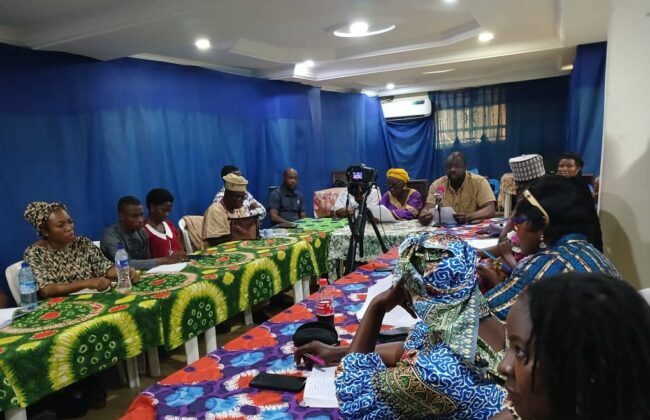Stakeholders under the aegis of the Civil Society in Malaria Control, Immunisation, and Nutrition (ACOMIN) have highlighted challenges that may be impediments as Nigeria begins the implementation of the global fund for malaria.
Following the successful completion of the NFM 3 Malaria Grant, the Global Fund has approved another three-year Malaria Grant for Nigeria, led by the National Malaria Elimination Programme and Catholic Relief Services.
ACOMIN being engaged in community-led monitoring under the grant highlighted inadequate staffing, equipment shortages, regular stockouts of medical supplies, high treatment costs, and poor record-keeping as challenges that are facing proper execution of the project.
Speaking at a media briefing in Abeokuta, ACOMIN Secretary, Tayo Akinpelu, noted that despite efforts, Nigeria still accounts for 27% of the global malaria burden and 31% of estimated malaria deaths worldwide.
He emphasised the need for effective prevention, diagnosis, treatment, and support services, especially for vulnerable populations.
He disclosed that the implementation of the grant is ongoing in Ogun, Delta, Osun, Kaduna, Kano, Kwara, Gombe, Yobe, Katsina, Adamawa, Taraba, Niger, and Jigawa states, while ACOMIN covers 130 LGAs, 260 wards, and 260 health facilities across all 13 states.
While demanding an improved primary healthcare system, Akinpelu reiterated that the high incidence of malaria cases in Nigeria calls for sustained engagement by relevant stakeholders.
“In the bid to promote and achieve improved malaria and health outcomes within Nigerian communities, ACOMIN recognises the importance of the primary healthcare system and thus has focused attention on factors that facilitate effectiveness at that level.
“However, our community-led monitoring activities indicate that some challenges that hinder effective service provision still exist. These challenges include inadequate staffing, equipment shortages, regular stockouts of medical supplies, and high treatment costs.
“Also, it has been seen that accurate and timely documentation is essential for effective healthcare delivery, but, due to limited staff, documentation often takes a back seat to immediate patient care needs, leading to incomplete, inconsistent, and sometimes inaccurate records.
“Challenges and problems that arise from inadequacy of staffing at the PHCs having been established above, it is important to state that the communities and their leadership can and do play significant positive roles in resolving these problems. These include increased ingenuity, flexibility in tackling challenges by identifying and addressing the root cause of failed interventions, and enhanced accountability, among others,” Akinpelu said.
On the activities of the over 1200 network of NGOs and CBOs, Akinpelu said ACOMIN has facilitated the full optimisation of the TB Dot service in Iberekodo PHC, Abeokuta.
He added that they are involved in administration, the repair of facilities in Igbogila PHC, the donation of benches in Ofada, and the construction of drainage in Owode-EEpota health centre.
“We call on the government, the private sector, stakeholders, and especially community leaders to commit to the following at their respective levels and areas of influence: improve funding and resources for PHC delivery, promotion, and education programmes to increase awareness of prevention measures,” he concluded.
ALSO READ THESE TOP STORIES FROM NIGERIAN TRIBUNE
